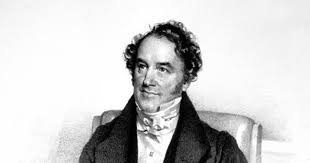Conradin Kreutzer (1780–1849) was a German composer and conductor renowned for his operas, lieder, and instrumental music. While not as widely known today, Kreutzer was a significant figure in early 19th-century German Romanticism. His music blends Classical traditions with early Romantic elements, offering a rich combination of lyricism and drama. Here are five of his most noteworthy compositions that showcase his versatility and musical genius.
1. “Das Nachtlager in Granada” (1834)
One of Kreutzer’s most famous operas, Das Nachtlager in Granada, is a prime example of early German Romantic opera. The work combines lively, lyrical music with a dramatic narrative. Based on a romanticized Spanish setting, the opera tells the story of love, jealousy, and misunderstandings. Kreutzer’s melodic writing and skillful orchestration brought him considerable success with this opera. Its overture remains particularly popular and is still performed in concert settings today.
2. “Die schottische Jäger” (1837)
Die schottische Jäger (The Scottish Hunters) is another opera by Kreutzer that solidified his place in the Romantic operatic repertoire. This work stands out for its use of folk-like melodies inspired by Scottish musical idioms, a popular trend in the Romantic era. The opera’s vivid orchestration, lively choruses, and dramatic arias highlight Kreutzer’s ability to blend foreign musical elements with German opera traditions. While not as widely performed as Das Nachtlager in Granada, Die schottische Jäger was well-received in its time.
3. “Septet in E-flat Major, Op. 62”
Kreutzer’s Septet in E-flat Major, Op. 62 is a chamber work that exemplifies his skill in instrumental composition. Scored for clarinet, horn, bassoon, violin, viola, cello, and double bass, the septet is a lively and engaging work, full of interplay between the instruments. It offers a delightful mixture of lyrical and virtuosic writing, with each instrument contributing to the texture in a balanced and harmonious way. The septet was a favorite in Kreutzer’s lifetime and is still appreciated by chamber music enthusiasts today.
4. “Fest-Ouverture, Op. 150”
Composed to celebrate festive occasions, the Fest-Ouverture, Op. 150 is a grand orchestral piece brimming with joy and ceremonial flair. Kreutzer’s use of brass and strings creates a jubilant atmosphere, making it perfect for celebratory events. The overture features majestic themes, dramatic contrasts, and vibrant orchestration, showcasing Kreutzer’s ability to write music that is both entertaining and emotionally stirring. Although less known than his operatic works, this overture is a hidden gem in Kreutzer’s oeuvre.
5. “Lieder” (Various Collections)
Kreutzer was a prolific composer of Lieder (German art songs), which were highly popular during the 19th century. His songs are characterized by their simple yet expressive melodies, often set to poems by famous writers such as Johann Wolfgang von Goethe. Some of his notable Lieder include “Der Hirt auf dem Felsen” (The Shepherd on the Rock) and “Das Mädchen von Juda” (The Maiden of Judah). Kreutzer’s ability to marry poetry and music in these songs made them widely admired in his day, and they remain valued for their lyrical beauty.
Conradin Kreutzer may not be a household name today, but his works, especially in opera, chamber music, and song, played an important role in shaping the musical landscape of 19th-century Germany. His compositions, full of warmth and emotion, offer a glimpse into the early Romantic style and continue to be appreciated by those who seek to explore beyond the more famous composers of the era.


Comments are closed